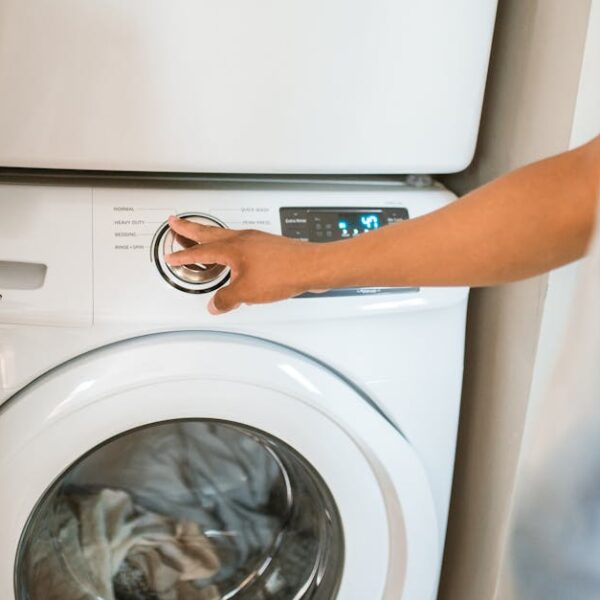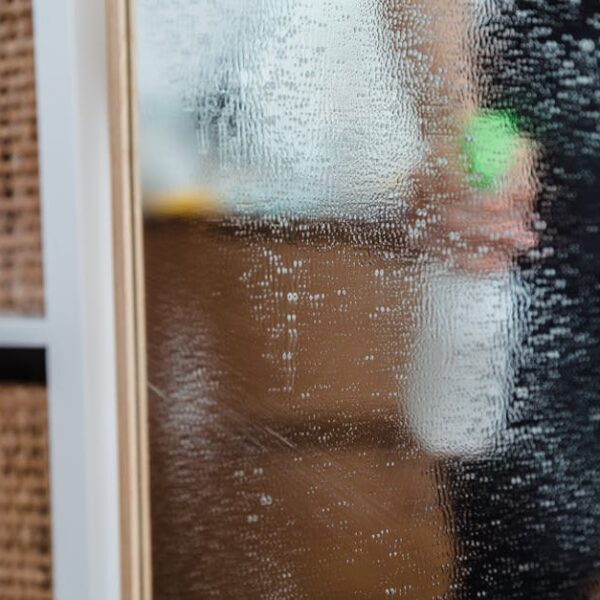Imagine you’ve just finished a cycle of laundry; you’re expecting that fresh, clean scent we all associate with cleanliness — but instead, you’re met with an odor that’s less than appealing. The not-so-fresh smell can be surprising, given your clothes have just come out of a wash cycle. However, several factors could lead to your laundry not smelling clean after washing. Here, we’ll delve into these reasons and provide practical solutions.
1. Wrong Washing Techniques
How you wash your clothes plays an essential role in the cleanliness and fresh scent of your laundry. Simple mistakes like overloading your washing machine can trap dirt and odor, leaving your clothes less clean than you’d hope. Similarly, grouping diverse fabric types and colors together might cause cross-contamination leading to residual odor. Lastly, using too much or too little detergent might seem trivial, but it significantly affects the smell of your clothes.
Best Practices:
- Do not overload your washing machine as this can result in less efficient cleaning.
- Group similar fabric types and colors together to avoid cross-contamination and color bleed.
- Use the right amount of detergent. Too little might not clean effectively while too much can leave a residue that traps odor.
2. Unfavorable Laundry Detergents and Fabric Softeners
The type of detergents and fabric softeners you use could be surprisingly contributing to your laundry’s less-than-fresh smell. Some these products can have an overpowering scent that doesn’t rinse out thoroughly during the washing cycle, leaving clothes with a murky fragrance. Additionally, some detergents could have ingredients that linger on your clothes, trapping unwanted smells.
Pro Tip:
- Don’t just choose a detergent or fabric softener based on how it smells from the bottle. Ensure the product rinses clean and leaves a subtle, fresh scent on your laundry.
3. Unhygienic Washing Machine
Even the machine designed for cleaning can be the cause of your problems! When not cleaned regularly, washing machines can accumulate dirt, mildew, leftover detergent, or fabric softener residues. This built-up can emit an unpleasant smell that may transfer onto your clothes during washing, contributing to that less-than-fresh scent post-wash.
Comparison – Homemade Cleansers vs Commercially available washing machine cleaners
- Homemade cleansers: The eco-friendly options, such as vinegar and baking soda, are cost-efficient but may require more frequent use.
- Commercial cleaners: These detergents formulated specifically for washing machines are more powerful but may contain harsh chemicals and be higher on the price point.
Can the Burnt Popcorn Smell Contribute to Laundry That Smells Dirty?
The pungent scent of burnt popcorn can linger in unexpected places, including laundry. This unique odor can mix with fabrics, creating a strong, unpleasant smell. To maintain freshness, it’s essential to find effective methods to eliminate burnt popcorn odor, ensuring your clothes smell clean and inviting once again.
4. Laundry Storage and Drying Practices
It’s not just the washing process that can affect the scent of your laundry. How you dry and store your clothes post-wash can also alter the fresh, clean smell. For instance, leaving clothes damp for a prolonged period, whether in the washer or heaped in a laundry basket, can trigger a musty smell.
Checklist:
- Dry your clothes thoroughly before storing, as dampness can lead to a musty odor.
- Avoid packing wet clothes together, which encourages bacterial growth and foul smells.
- Try to remove clothes promptly from the washing machine once the cycle has ended to prevent them from gathering that damp, moldy smell.
5. Water Quality
Water quality can significantly impact the smell of your laundry. If your home’s water supply contains a high mineral content, commonly known as hard water, your detergent’s efficiency can be compromised. The result? Clothes that are less than clean and do not smell fresh. Additionally, minerals present in the hard water might interact with the detergent, leaving a residue on clothes that traps odors.
Best Practices:
- Consider using laundry boosters which are special products designed to enhance detergent function in hard water.
- If your water source is high in mineral content, it might be worth investing in a water softening system for optimal laundry results. This system will remove excess minerals from your water, allowing your detergent to work more effectively and leave your clothes cleaner and fresher.
In conclusion, achieving that fresh, clean laundry scent requires more than just running a wash cycle. It requires the right washing techniques, the right products, regular cleaning of your washing machine, optimal drying and storage practices, and paying attention to your water quality. Incorporate these best practices and watch your laundry emerge smelling cleaner and fresher from each wash. Happy washing!
Key Takeaway:
- Incorrect washing techniques, such as overloading the washer or using the wrong amount of detergent can affect the cleanliness and fresh smell of your laundry.
- Certain detergents and fabric softeners can leave residues on clothes, affecting their fresh smell.
- An unclean washing machine can accumulate dirt, mold, and leftover detergent that can emit an unpleasant smell on your clothes.
- Improper laundry storage and drying practices, such as leaving clothes damp for too long, can cause a musty smell.
- Hard water or water with high mineral content can interfere with detergent efficiency, leading to less-than-clean and fresh-smelling clothes.
While achieving fresh and clean-smelling laundry may seem challenging, understanding the factors affecting the scent of your clothes can make a big difference. By following the best practices listed, you can significantly improve the smell of your laundry and enjoy a fresher, cleaner wardrobe!
FAQs
Q: Can the type of laundry basket I use affect how my clothes smell?
A: Yes, a laundry basket can harbor bacteria and mold if damp clothes are left inside for too long, which can result in a musty smell. Use a ventilated basket and ensure clothes are fully dry before storing.
Q: What are some natural ways to make my laundry smell fresh?
A: Natural solutions like white vinegar and baking soda can help remove unpleasant odors. Also, consider using essential oils for a delightful scent.
Q: How often should I clean my washing machine?
A: It is recommended to clean your washing machine at least once a month to prevent buildup of dirt, mold, and detergent residues.
Q: Can the color of my clothes affect how clean they smell?
A: While the color of your clothes does not directly affect their scent, mixing colors and fabrics during washing can lead to color bleed, which might trap unwanted odors.
Q: Why does my laundry smell worse after washing?
A: If your laundry smells worse after washing, there could be several reasons, including using too much detergent, not cleaning your washing machine regularly, or allowing clothes to remain damp for too long.
We hope this guide has been helpful and encourages you to keep exploring for more laundry tips. Don’t forget to share this post with your friends and family to help them achieve fresher, cleaner laundry too!












